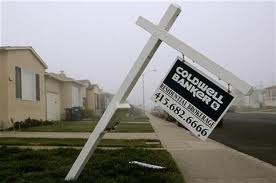
A rough timeline of the American housing bubble goes like this: Deflation started in late 2006 and culminated with a burst in late 2008. Purchase activity languished through late 2011, and price declines were recorded through early 2012. The global financial crisis and the Great Recession unfolded throughout this time, and yet a total housing market meltdown was averted –a feat that can be credited to the U.S. Federal Housing Administration (FHA).
The FHA was created in the wake of the Great Depression. For nearly 80 years, the FHA has operated without the benefit of taxpayer funds. By providing insurance to mortgage lenders and promoting fair and sound lending practices, the FHA provides stability to the housing market. When Congress approved the enactment of the FHA in 1934, the aftermath of the Great Depression had been particularly damaging to the housing economy. Since 2007, the FHA’s role in the housing market has prevented a revisit to those dark days.
The Active Role of the FHA
In early 2006, subprime and Alt-A mortgages held the lion’s share of the home loan origination market. That market share would dwindle down to zero by 2009. From 2007 to 2010, the combined FHA and VA mortgage origination volume went from $500 billion to $2.5 billion –a quarter of all home loan originations in the U.S. Without this increased lending activity, housing analysts from the Center for American Progress estimate that home values would have plunged another 25 percent, thus sending the economy into chaos.
The fact that the FHA has managed to keep the American housing market from going off the deep end is even more remarkable when considering that it has done so without taxpayer support. This financial feat, however, has placed the agency under duress. Losses from mortgages originated between 2005 and 2009 are beginning to pile up, and the FHA’s capital reserves are at an all-time low. This has prompted speculation about the agency’s need to borrow funds from the U.S. Treasury.
A Debt of Gratitude
Given the magnitude of the government bailouts extended to major financial institutions since 2008, the FHA’s need for rescue funds from the Treasury is a matter of national concerned. Taxpayers have been burdened since, and the national budget deficit makes this proposal seem very risky. The laws and rules governing the FHA grant the agency an open line of credit from the Treasury, but attempts to deny a bailout could be catastrophic. This would be more than just a debt of gratitude for taxpayers; it simply makes economic sense.



